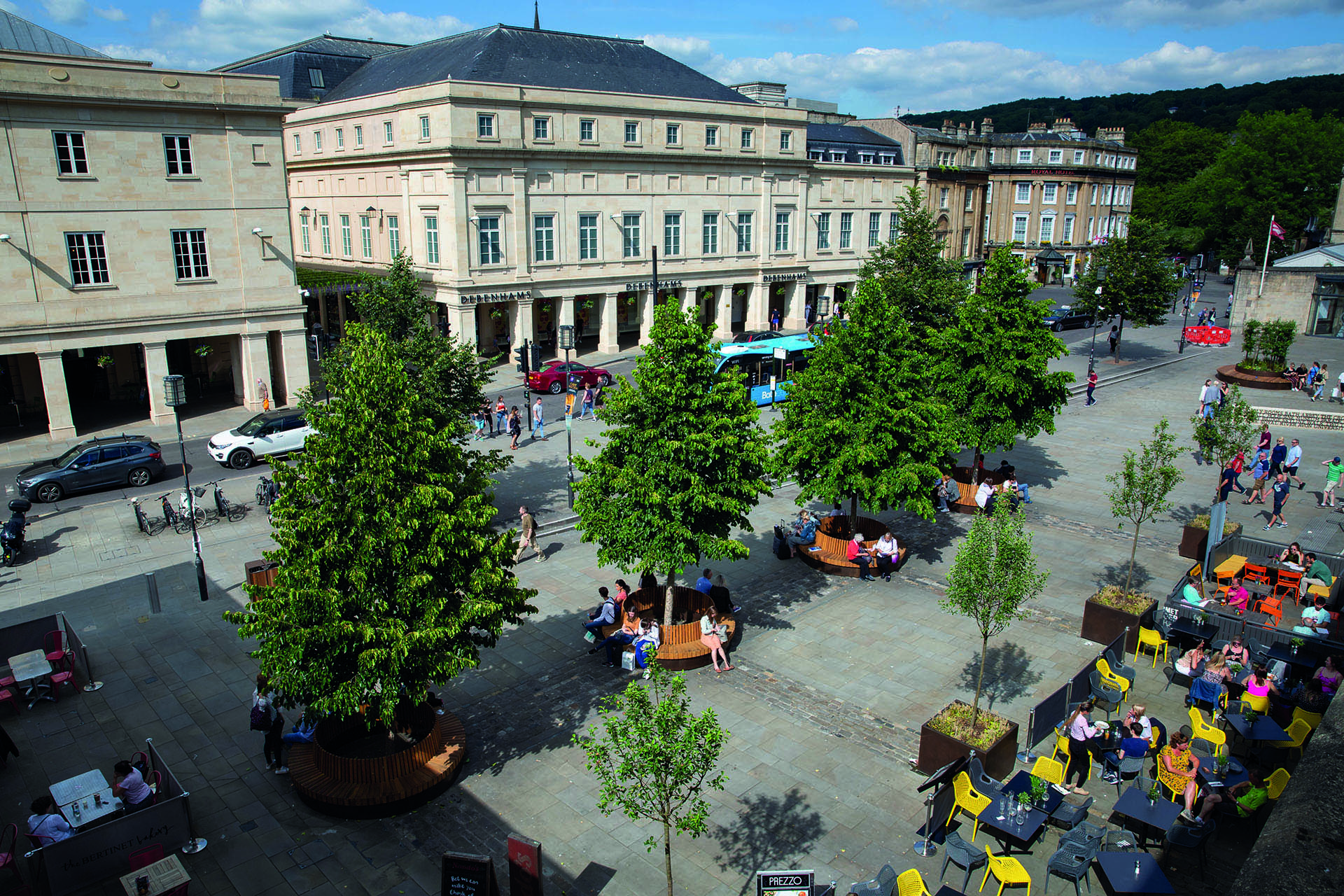For more than a year, COVID-19 has been disruptive to all our lives, with the repeated lockdowns and periods of isolation affecting people in varied ways, and this has resulted in an increased appreciation of the outdoors and in the expansion and redevelopment of urban spaces to better suit the changing world.
A survey by Natural England demonstrated that 89% of adults agree that green and natural spaces are good for mental health and general wellbeing, with demands for public spaces particularly prominent among the lower earners, who are less likely to have a home garden or to live close to parks and other outdoor recreation, a problem only enhanced by travel restrictions and lockdowns.
Utilising our urban and retail spaces, repurposing them to make quality social and green spaces everywhere we can, is among the most important tasks our government faces today.
“The environment, after all, is where we all meet, where we all have a mutual interest. It is the one thing that all of us share.”
– Lady Bird Johnson
It’s a testament to the the councils, planners, landscape architects and associated industries, that many areas of the UK have been ahead of this problem. While it may seem to the public that many projects are in reaction to the pandemic, a huge number of schemes across the UK in fact reflect years of investment, work and dedication.

The West End Project in London has had a massive impact on several areas already with many more to come. Pocket parks will be appearing along Tottenham Court Road, and Alfred Place will be the first new green space for its borough in 25 years. Whitfield Gardens (pictured) has undergone a complete refurbishment, including a restoration of the famous Fitzrovia mural, utilising fixed and movable street furniture to allow the space to be flexible for a wide range of events.
Public realm enhancement undertaken in Southgate, Bath in 2019 was specifically targeted at providing spacious locations to dwell and socialise, with Brunel Square outside the main train station featuring expansive tree seats ideally situated for the nearby outdoor dining.



The seating installed in Peach Place, Wokingham, brings artistic flair that invites you to linger in a delightful commercial space without infringing upon social distancing, and you’ll find our spacious Grid benches peppered along Kensington High Street. Ensuring customers have spaces to wait and rest is essential in revitalising the retail economy.

Ongoing on a massive scale, the redevelopment of Wembley has taken every opportunity to include wall & step seating or expansive vent seating platforms at ground level, with countless roof garden and balcony spaces being included on the surrounding commercial and residential properties. Developers are seizing the chance to design bespoke solutions for roof gardens and balconies, to fully utilise their available space in creative ways, such as the planter seating shown here at Camden Lock Village.

Schemes reacting to the changing demands of urban spaces are happening around the world in increasing numbers. The Lithuanian capital city of Vilnius provided space for outdoor catering to 400 businesses and closed many roads, some changes now being permanent, effectively converting the centre into a single massive open-air café. San Fransisco’s Shared Spaces programme fast tracks the use of outdoor venues benefitting businesses and customers alike, and the Bristol Street Space programme looks to restrict traffic flow through retail zones to improve the space for visitors. Such schemes have quickly and dramatically impacted areas, and changed their perception for good.
The users of these new spaces are making them their own, and will not readily allow a return to pre-COVID conditions. Woodscape are grateful to be a part in these spaces all over the UK, and is working closely with the industry on hundreds more, by making street furniture that truly makes spaces.
